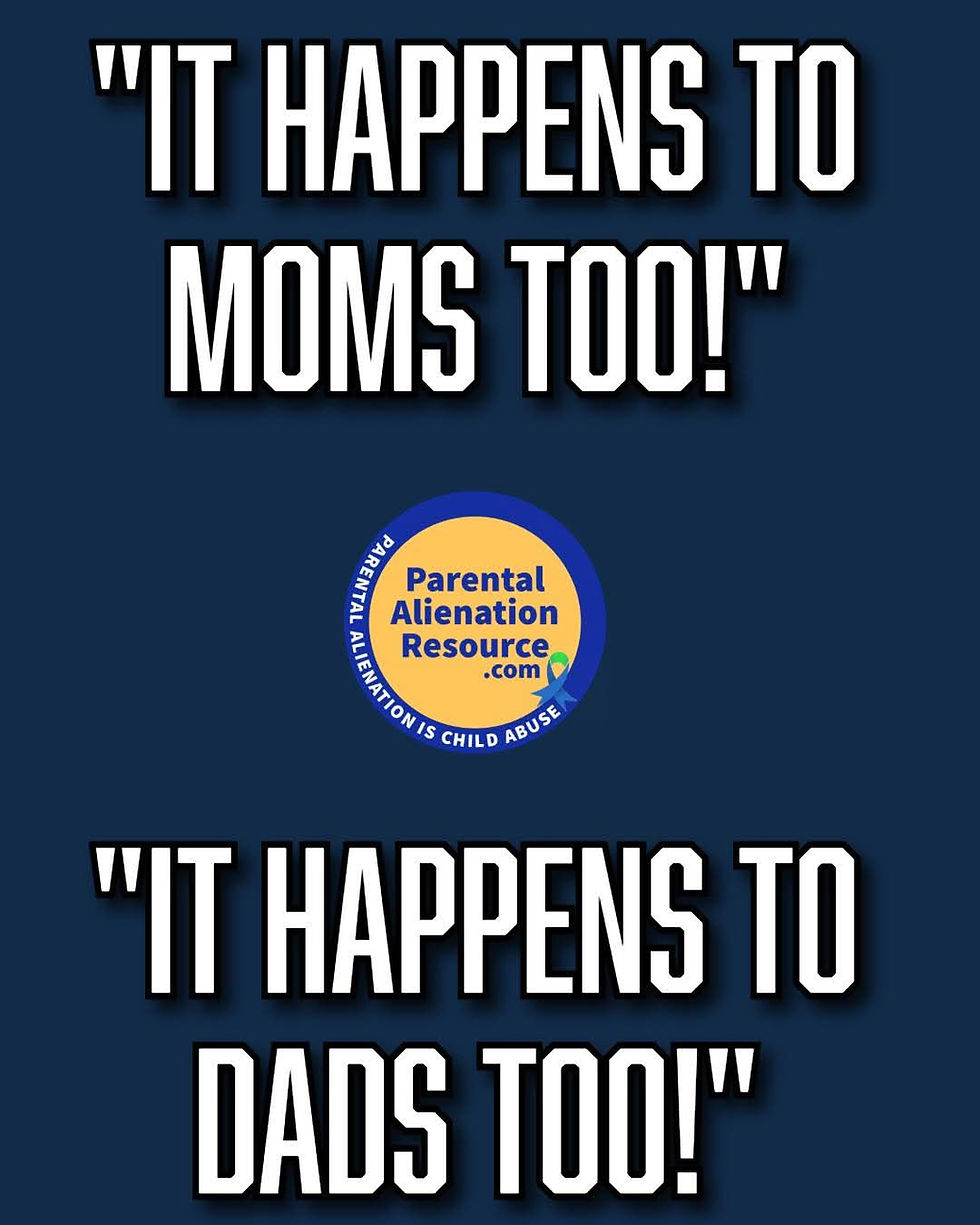What is Parental Alienation
- Parental Alienation Resource

- Aug 6, 2023
- 3 min read
Updated: Aug 16, 2023

Parental alienation refers to a situation where one parent, often in the context of divorce or separation, deliberately attempts to manipulate or influence their child's perception of the other parent in a negative way. The alienating parent may engage in various tactics, such as making derogatory remarks about the other parent, restricting contact or visitation, or even making false accusations.
The impact of parental alienation on families can be significant and long-lasting. For the alienated parent, it can lead to feelings of sadness, frustration, and helplessness due to the loss of a meaningful relationship with their child. The child, on the other hand, may experience confusion, loyalty conflicts, and emotional distress as they are caught in the middle of the parental conflict. In severe cases, the child may even develop a distorted perception of the alienated parent, leading to a strained or damaged relationship.
Over time, parental alienation can have detrimental effects on the child's emotional well-being, self-esteem, and ability to form healthy relationships. It may also contribute to the perpetuation of intergenerational conflict and negatively impact the overall family dynamics.
Recognizing and addressing parental alienation early on is crucial in order to mitigate its harmful effects. Interventions may involve family therapy, counseling, and legal measures aimed at promoting healthy communication, rebuilding trust, and ensuring the child's right to a meaningful relationship with both parents.
It's important to note that parental alienation is a complex and controversial topic, and there may be varying viewpoints and interpretations within the field of psychology. Consulting with experts who specialize in parental alienation can provide a more comprehensive understanding of the dynamics at play and potential interventions.
In addition to the emotional impact, parental alienation can also have legal and practical consequences. In some cases, parental alienation may be considered a form of psychological abuse or manipulation, and it can influence custody decisions in family court proceedings. Courts typically aim to prioritize the best interests of the child and will take into account any evidence of parental alienation when making determinations about custody and visitation arrangements.
Addressing parental alienation requires a multifaceted approach. It is important for both parents to recognize and acknowledge the existence of alienating behaviors and their harmful effects on the child. Open communication, cooperation, and a willingness to put the needs of the child first are essential for resolving parental alienation.
Therapy or counseling, both for the child and the parents, can help facilitate healing and improve family relationships. Family therapy provides a safe space where everyone can express their feelings and concerns, while also learning healthier ways to communicate and manage conflicts.
Legal intervention may also be necessary in severe cases of parental alienation. This can involve seeking court orders to enforce visitation rights, modifying custody arrangements, or even supervised visitation to ensure the child's well-being and maintain a relationship with the alienated parent.
It is worth mentioning that prevention is always better than intervention when it comes to parental alienation. Promoting healthy co-parenting, maintaining open lines of communication, and fostering a positive and supportive atmosphere for the child can help prevent alienation from occurring in the first place. Creating a parenting plan that outlines clear expectations and responsibilities can also contribute to a healthier co-parenting dynamic.
Overall, parental alienation is a distressing issue that can have far-reaching consequences on families. Recognizing the signs, seeking appropriate support, and taking proactive steps to address the issue are crucial in mitigating its negative impact and promoting the well-being of all family members involved.









Comments